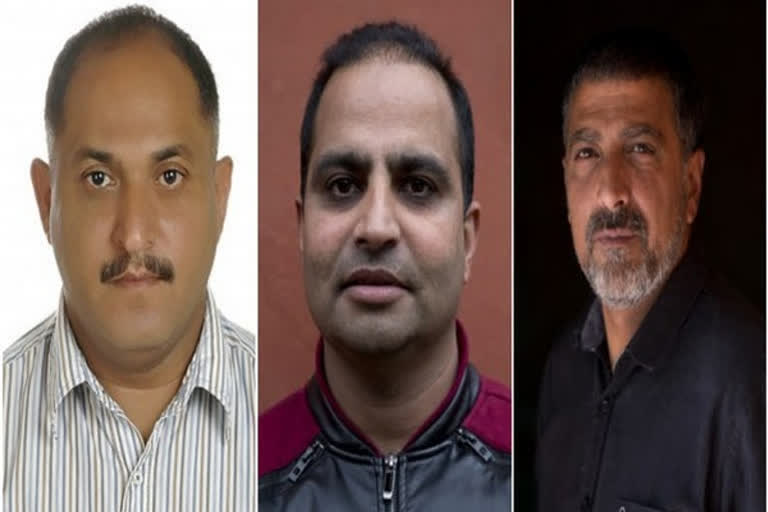Hyderabad:Journalists in a conflict zone always walk on a razor edge in pursuit of their professional duties. While reporters write their copies with proper attributions using credible voices, photojournalists capture stories through their lenses. It is the courage that takes a photojournalist close to a good human interest story and not just his journalistic acumen.
This courage sometimes comes with a heavy cost for a journalist, like Kashmiri photographer Mushtaq Ali, who was killed in a parcel bomb blast, probably for a story his colleague and journalist Yusuf Jameel might have written. Or like Hindustan Times photojournalist Pradeep Bhatia, whose eagerness to capture the depth of the story in Srinagar made him fall victim to a car bomb.
Our three journalist colleagues of Jammu and Kashmir - Mukhtar Khan, Dar Yasin and Channi Anand won the prestigious Pulitzer Prize for covering Kashmir post-August 5, 2019, when the erstwhile state was stripped of its special status. This award primarily is not just for taking pictures showcasing Kashmir as it exists but also the circumstances in which these photos were captured.
A picture of a 6-year-old girl with one injured eye shows how children are the most vulnerable to political conflict. This particular case of a child through the picture underscores the overall vulnerability of children in the region.
Another picture displays armed forces reciprocating student protests with rage over the parked motorbikes in Srinagar.
Read:Three Indian photojournalists win Pulitzer Prize
People clearing the debris after a house somewhere in the countryside of Kashmir, which was blown up during a gun battle between militants and security forces is one of the striking pictures that led to the Pulitzer win. This shows how people in frosty winters clear the debris to arrange makeshifts dwellings. This also reflects how uncertainty looms large over people viz their shelters.
Pictures of protesting women, praying women and girls reciting the holy Quran have conceptual storylines for viewers depending on how they look at them. It can be viewed from a human angle to see the plight of a particular gender in a disturbed area and can also be seen from the angle of religion making it look like a communal story interpreting it with an Islamic radicalism, which is now a new normal among some sections of interpreters claiming to be journalists.
What seems to be troubling is that many believe that a photojournalist is not entitled to celebrate a prestigious honour merely because he has captured the reality of a place which is unpalatable to a few.
Read:Kashmir through lens of scepticism
The Pulitzer prize, which the three photojournalists have been honoured with, have gone controversial not for the photos they have captured but the interpretation the organizer has made. Rahul Gandhi praising the trio through a tweet for the body of work they have produced has landed him in a catch-22 situation as his tweet is seen as political blasphemy and an act of deceit and sedition because the organisation for which the journalists work termed Jammu and Kashmir as ‘contested territory’.
This has raised another debate whether the prize winners shall be termed as Indian journalists or just Kashmiri journalists. While Rahul in his tweet explicitly tried to highlight the word ‘Indian’ attributing it to the journalists, Omar Abdullah tried to evade it in his tweet and emphasised on the situation to congratulate the award-winning journalists. People opposing the world’s prestigious award are in a dilemma whether they should approve the celebration in their narratives or shall confuse people with prefixes as mentioned in most of their tweets.
